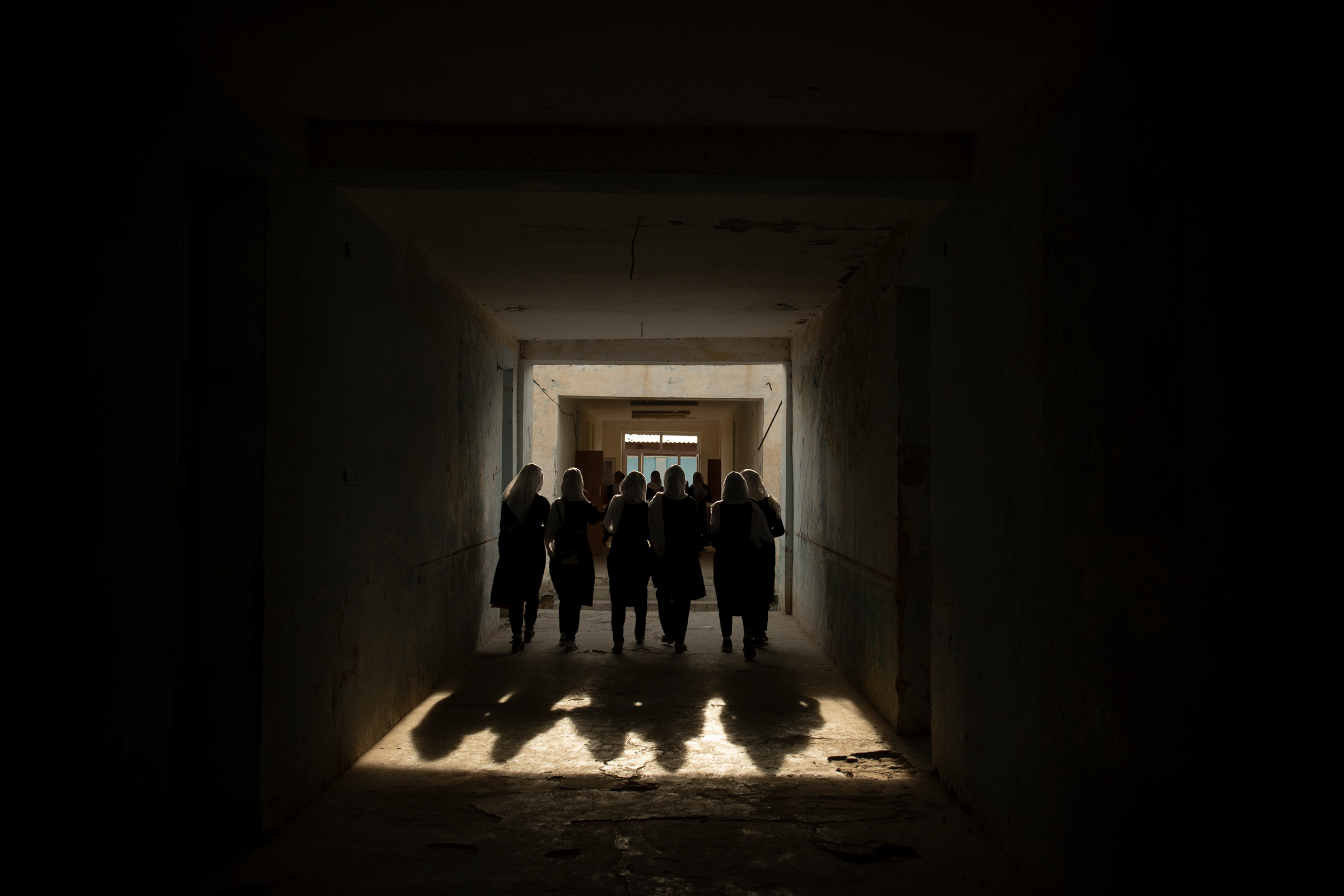Published in partnership with Rukhshana Media, an Afghan women’s media organization, and The Fuller Project, a global nonprofit newsroom reporting on issues that affect women.
When Taliban fighters encroached on the Afghan capital Sunday, Zainab, a reporter in her mid-20s, made a decision to leave the country. She had never been abroad, but it did not deter her. If anything, it propelled her forward.
She threw some clothes into a bag, along with her passport, two mobile phones and a wad of cash before climbing into a taxi with her brother and father. They set off for the airport. Cars full of people gridlocked Kabul’s streets as thousands attempted to flee an Afghanistan soon to be under Taliban control. Afghans had watched in disbelief as major provincial capitals fell swiftly to the Taliban over a matter of days, and Kabul soon swelled with people seeking shelter.
Only the capital — and a small patch in neighboring Panjshir province — was left.
Zainab, who does not want her last name published for security reasons and her family’s safety, has reported for American, British and German media — and was working on a months-long assignment for The Fuller Project and TIME when the Taliban seized control that day. She worried her work with foreign media would make her an easy target for the insurgents and she feared for her life.
On the way to the airport, several men on motorcycles snaked their way through the traffic before stopping at their car. They pointed their automatic rifles at the occupants, ordering everyone out. The men then robbed Zainab of the bag, the one she had packed hours before with a few essentials to leave the country. “They took everything. I was so scared, but I thought, ‘Now what if the Taliban comes for me?’” she said.
So she kept going.
They made it to the airport. Zainab said goodbye to her family and stepped inside, where she waited, without any identification or proof of who she was, for hours. As dusk arrived, the Taliban did, too, and soon shot at the large crowds that had gathered.
“People were running in all directions. I got on a plane, not even knowing where it was going.” It was cavernous and crammed with Afghan families, standing up and jostling for room. Zainab had boarded the now-famous U.S. Air Force plane that has become symbolic of the desperate end of the American war. Photos from the flight show a mass exodus as the Taliban took the capital, sealing their victory after twenty years of battling NATO and Afghan troops.
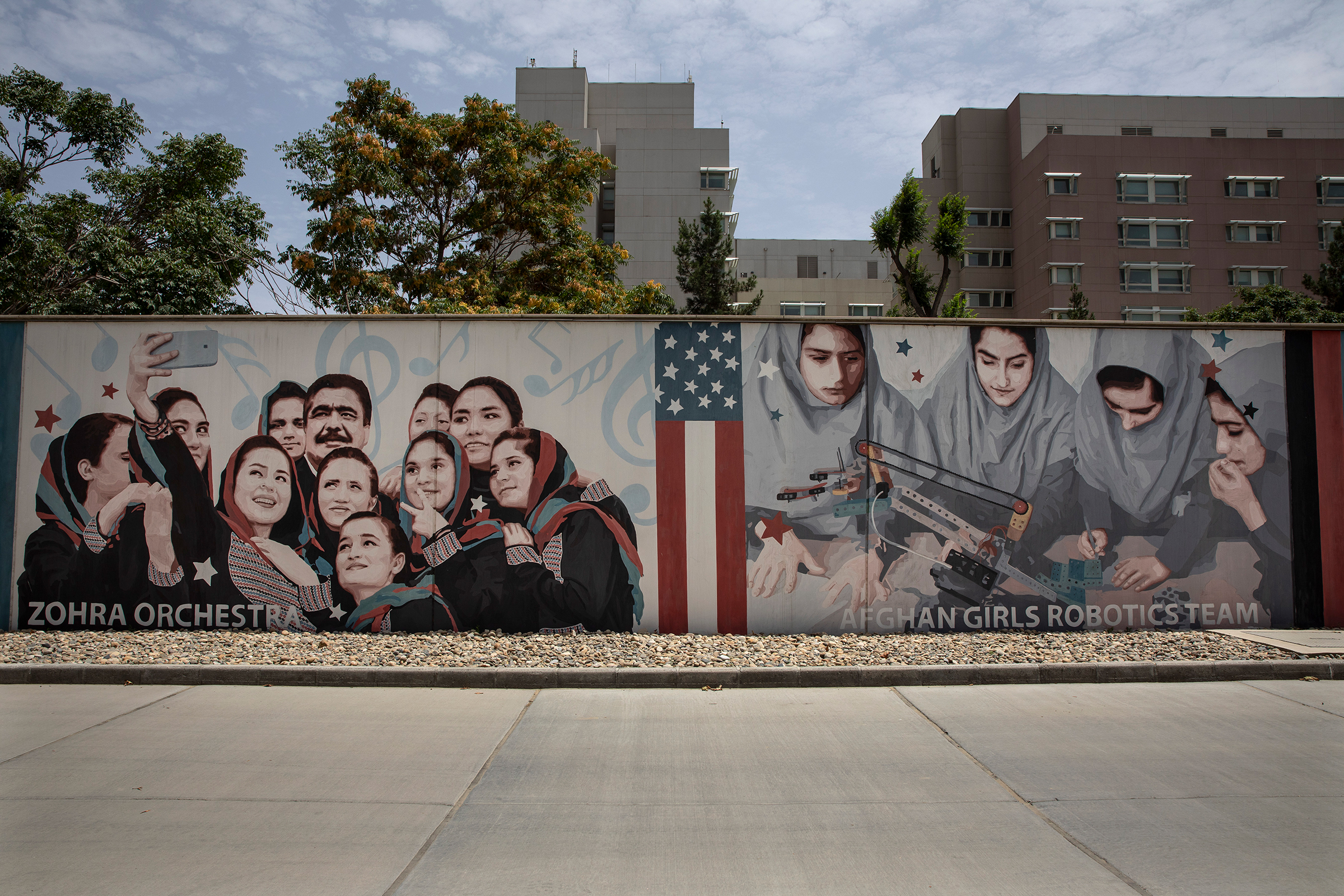
Two decades of progress, brought to a halt
With the Taliban back in power, women across Afghanistan brace for an uncertain future, waiting, as the days creep by, to discover what they have lost. Over the past 20 years, bookended by Taliban control of the country, women have filled university hallways, lined offices, traveled freely across the country and further afield and joined nearly every aspect of public life. They have joined the military, judiciary systems and government. The list of their achievements is anything but exhaustive: Afghan women and girls have formed a national cricket team, competed in the Olympics and won international science competitions.
All would have been unthinkable under the group’s previous rule, from 1996 to 2001, when women were subjected to draconian treatment, forced to wear a head-to-toe burqa if stepping outside, required to travel with a mahram, a male relative escort, and denied rights to education and work.
Since the Taliban’s takeover, the international community, from the British and New Zealand prime ministers to the U.S. Ambassador to the United Nations, has implored the group to uphold human rights, especially those of women. Improving the plight of Afghan women and girls was a central message of the 20 year American-led war. Washington has spent at least $787 million on attempting to better their lives since 2002.
The extremist group has positioned itself as a transformed force, and said it will not pursue reprisals against the Afghan government and its supporters. “Everyone is forgiven,” said the Taliban spokesman Zabihullah Mujahid two days after the group took control. But millions of Afghans fear the group will return to its brutal and oppressive past.
The spokesperson also said the Taliban will respect women’s rights “within Islam”, though this leaves much to interpretation, and evidence is mounting of diminished freedoms. As the Taliban swept back to power in recent weeks, its fighters have turned women away from their workplaces and barred them from entering universities.
Many women fear reprisals. In Kabul, several Afghan female journalists said Talibs were in their neighborhoods, going door to door, making lists of women who worked in the media and government. One sent a video she captured from her balcony, showing armed Taliban members atop of her neighbors’ house, where they took selfies against the Kabul skyline. “I feel like I will die a gradual death here,” she wrote in a message.
On Friday, German state-owned broadcaster Deutsche Welle said the Taliban had targeted and killed a relative of one of its reporters. Salima Mazari, a female district governor who took up arms against the Taliban in recent months, was reportedly captured by the insurgents shortly after they took power, and her current whereabouts are unknown. Many previously outspoken and prominent Afghan women, including former politicians, rights advocates and famous authors, both in and outside of the country, declined to speak even anonymously in recent days.
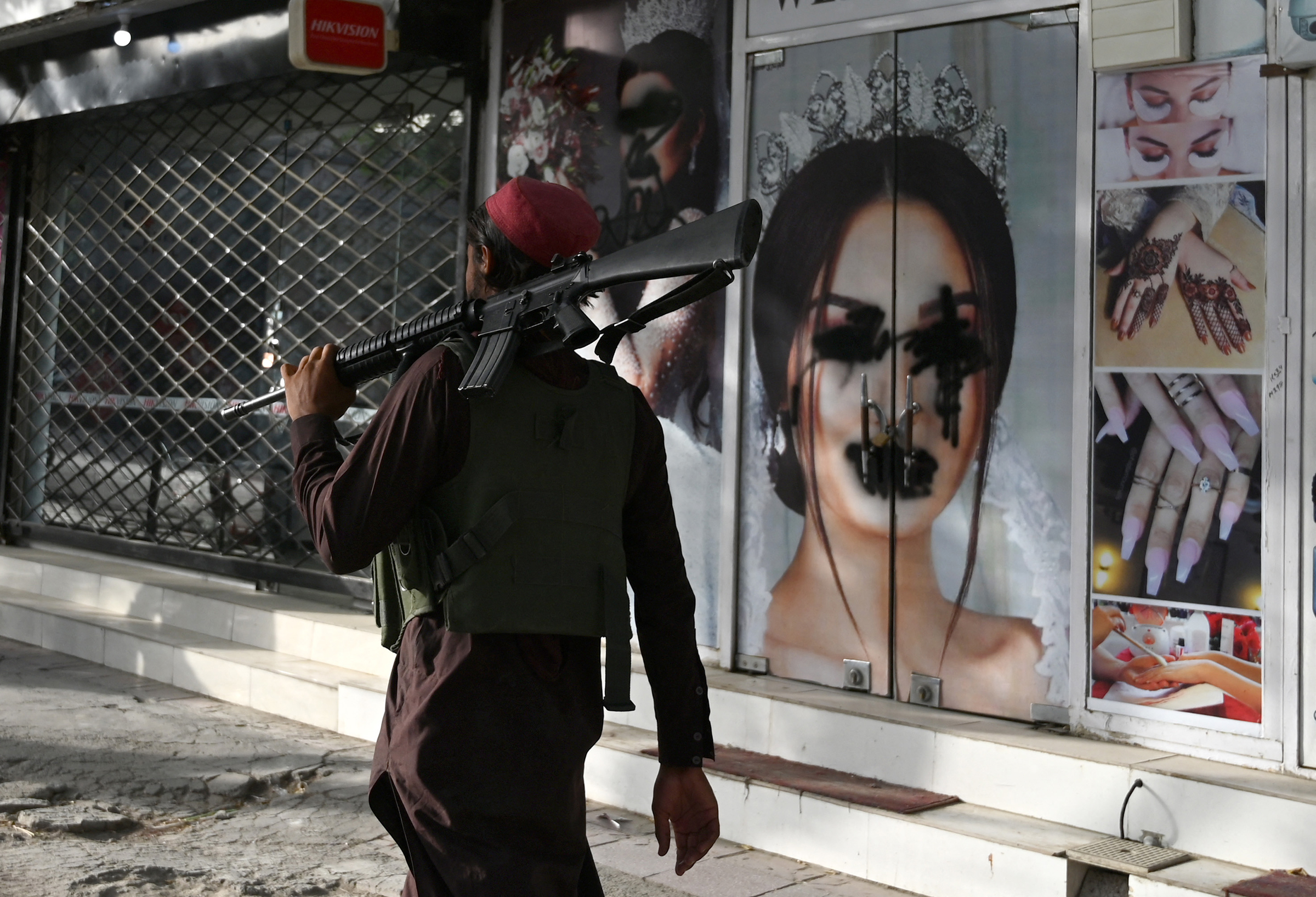
‘We feel we have lost everything.’
The women in Afghanistan who did agree to speak described feeling abandoned and betrayed by the world, and especially by the U.S. Sportswomen are burning their kits, journalists are scrubbing away their social media presence and Kabul’s streets are increasingly devoid of women.
“The U.S. is taking back what it gave us,” said Hosni, 30, who has worked for a Western-funded NGO for the past five years in Kabul and asked to be identified only by her first name. “What happens to women? We feel we have lost everything,” she said.
Before Kabul fell, a usual day for Hosni would include a visit to the gym after a day at the office, or meeting friends for a coffee inside one of Kabul’s trendy cafes, pockets of calm and sanctuary where young women could freely socialize.
Today, her office is shut and she sits at home, directionless and without a routine to shape her week. “I cannot even watch a movie, I’ve hidden my books, I can’t dance or listen to music. I haven’t done any of this in the past days,” she said.
Practically overnight, Lida, 32, has gone from being part of a small cadre of women at the Afghan Attorney General’s Office to mourning her career. “With the Taliban back in power, everything will die for women,” said Lida, who asked to be identified by a pseudonym due to security concerns.
The anti-corruption prosecutor completed her Master’s degree last year, with a specialism in criminology. She has long been a dedicated high achiever: when she was studying for her undergraduate degree, she attended classes while pregnant with the first of her two sons, who is now nine years old. “All that I have worked for, all of my dreams, have become zero, multiplied by more zeroes.”
As the Taliban inched closer towards Kabul last weekend, Lida headed to the market in search of “clothes that will keep me safe from the Taliban’s lashes.” When they ruled in the 1990s, Taliban police would whip women for not being properly covered up. In recent days, Afghan social media has swirled with photos of men and women, showing fresh welts from being beaten by Taliban mobs for not dressing according to Islamic custom.
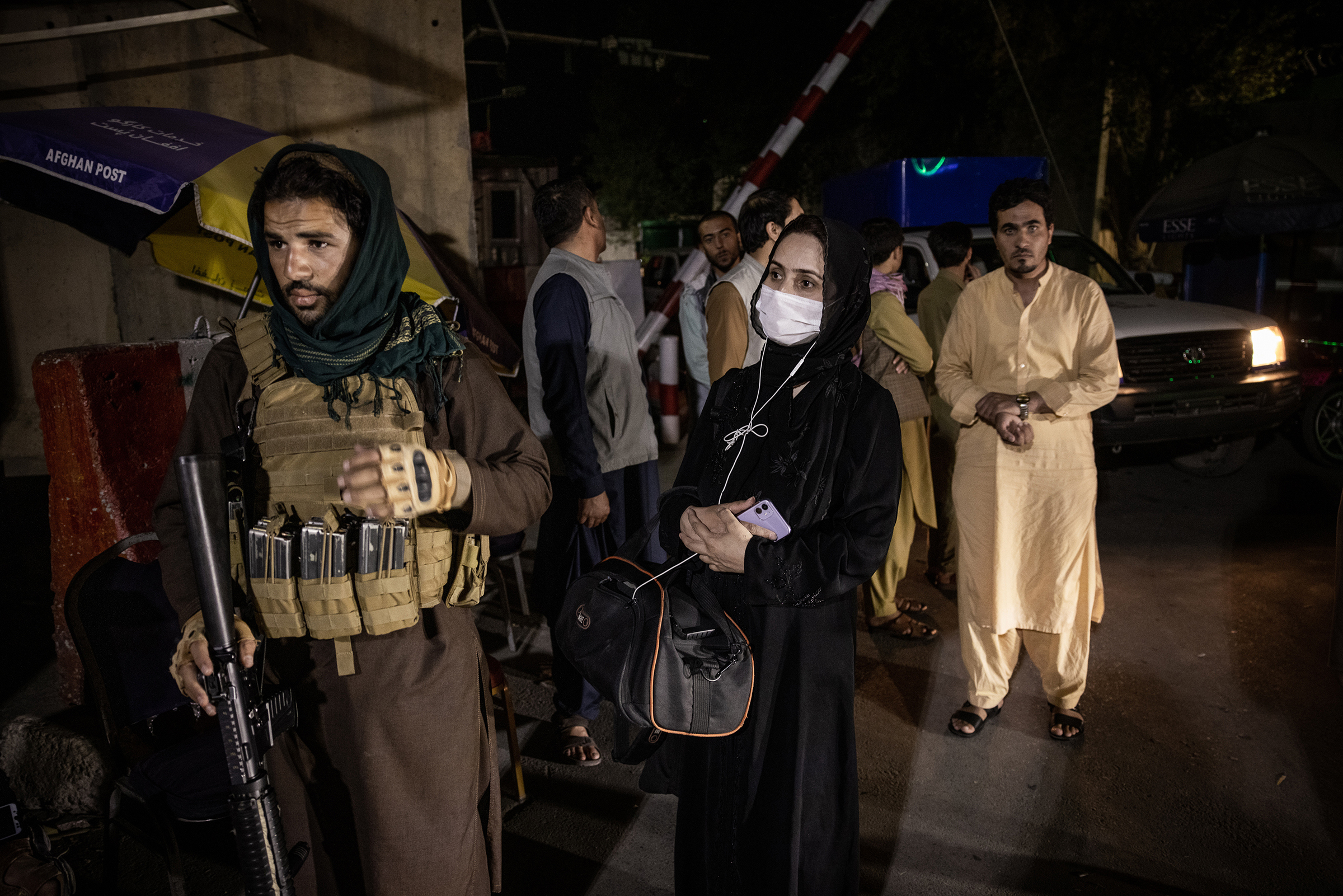
The women preparing to resist
The Taliban is now seeking legitimacy on a global scale, and there are signs they are getting closer. After Kabul fell, Russia and China, two of the five permanent members of the United Nations Security Council, hinted they are open to the idea of recognition. The United States and its Western allies have said such recognition would be condition-based, dependent on the group’s treatment of human rights.
But it is still unclear just how much political leverage and heft the rest of the world will have. “The most important question is whether women are going to be fighting this alone, or whether the international community has their back. That is the very least they deserve,” said Heather Barr, interim co-director of the Women’s Rights Division at Human Rights Watch.
There is a green shoot of hope in today’s dreary landscape, offering a challenge to the Taliban’s leadership: Afghan youth. The country has one of the youngest populations on earth, with 63% of its people under the age of 25, meaning most Afghans don’t remember what life under the Taliban was like. “This younger generation is saying, ‘I’m not going to go back’. They’re very determined, a force to be reckoned with,” Barr said.
Some of that translates into fierce defiance. In the days following the Taliban takeover, Afghan female journalists interviewed members of the Taliban on live television and in the open air. Women also led protests in Kabul, draping themselves in the black, red and green colors of the Afghan national flag, which the Taliban wants to replace with its own, a white banner with a black Islamic inscription. They have confronted armed members of the Taliban and demanded their hard-won gains be preserved, holding up hand-written messages scrawled on sheets of paper and chanting, “Work, education and political participation is our right!”
Many young Afghan women, especially those who are educated, grew up listening with horror as their mothers and grandmothers relayed stories from the times of the Taliban. The daughters’ lives were testament to change, and progress. “My family was a role model in our village,” says 22-year-old economics student Mozhgan, also a pseudonym. “People look and say, ‘their daughter studied and she can now help her family,” she said from her home in Samangan in central Afghanistan.
But that life is quickly unravelling. Since the Taliban seized control of her province earlier this month, Mozhgan has attended a wedding with no music and stopped her numeracy lessons for adult women. She now doesn’t know if she will be able to graduate, let alone work.
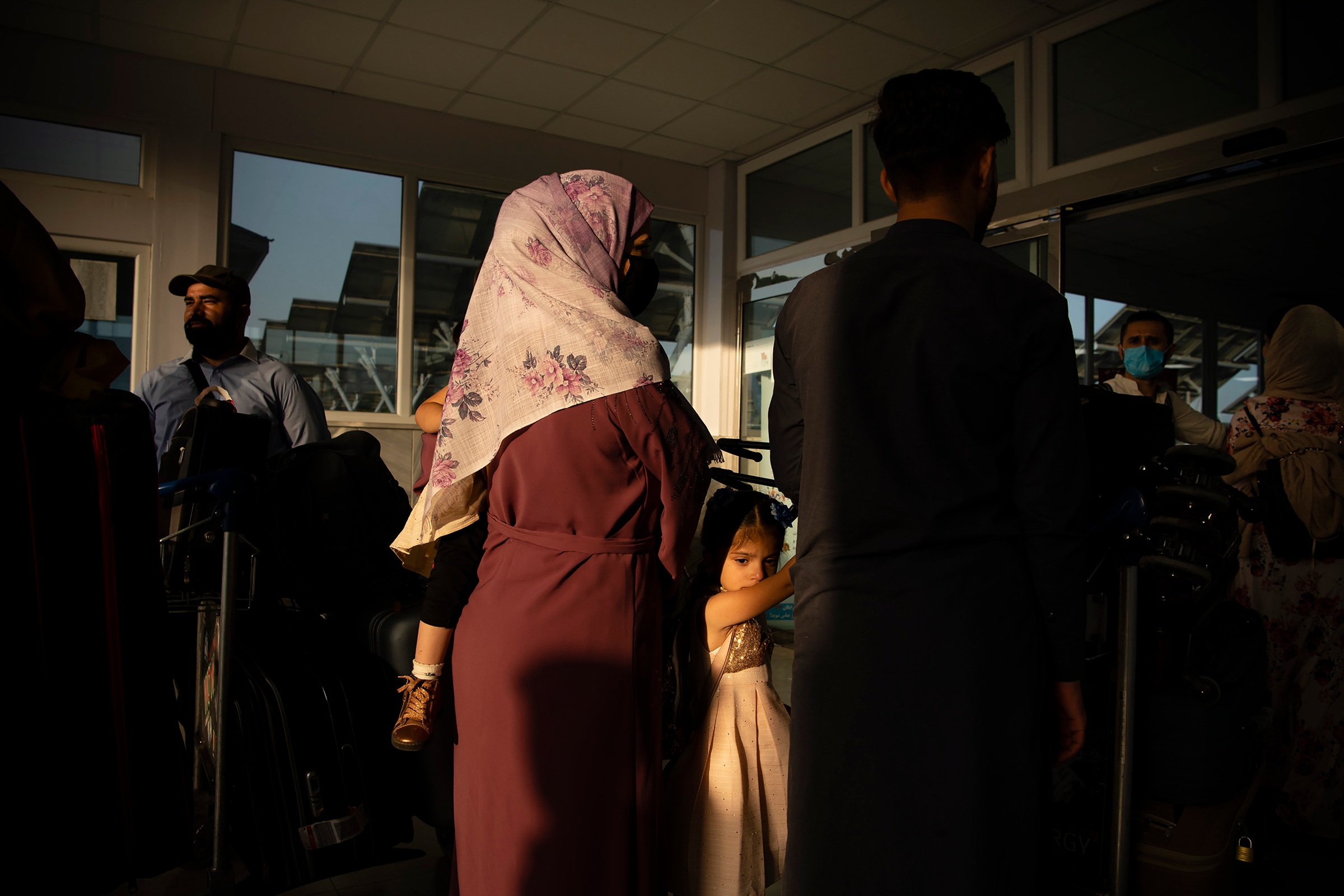
The hollow freedom of the exiled
Many Afghans felt they had no option but to try to leave, rather than wait to see if the Taliban’s promises would spare their lives, and those of their families.
When Zainab’s massive cargo plane landed and slid along the tarmac, the doors opened and a gush of hot air rushed over the evacuees. Some thought they were in Egypt but soon learned it was Qatar. They erupted into jubilation. “People started laughing and crying. Some were singing. They couldn’t believe it,” Zainab said days later from the sprawling U.S. military base where she is staying. “I didn’t, though. I had no one to cry or laugh with.”
Zainab now waits, alone, eating U.S. military-issued cookies and sleeping in the clothes in which she fled — a pewter blouse, dark pants and a yellow scarf. She hopes to claim asylum in a western European country. “I now have freedom. Freedom is the only thing that matters,” she says between muffled sobs, as she moves between elation to fear for her brothers, but especially her sisters, whom she left behind in Kabul.
“They say more refugees are coming here,” she says from her cot bed on the base. “I hope they manage, because the Taliban will never change.”
More Must-Reads from TIME
- Why Biden Dropped Out
- Ukraine’s Plan to Survive Trump
- The Rise of a New Kind of Parenting Guru
- The Chaos and Commotion of the RNC in Photos
- Why We All Have a Stake in Twisters’ Success
- 8 Eating Habits That Actually Improve Your Sleep
- Welcome to the Noah Lyles Olympics
- Get Our Paris Olympics Newsletter in Your Inbox
Contact us at letters@time.com
